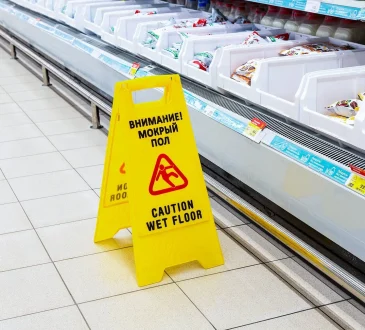
When a drug or medical device meant to heal ends up causing harm, patients in Indianapolis want straight answers and a clear path forward. Product liability law provides that path. This article explains how defective drug and medical device claims work in Indiana courts, the role of FDA recalls, what compensation may be available, how manufacturers are held responsible, and what trends are shaping healthcare-related lawsuits locally. It also points to experienced Indianapolis resources, such as Cohen & Malad, LLP, for those seeking help with Indianapolis Drug & Medical Device cases.
Defective drugs and medical device claims in Indiana courts
Indiana product cases involving pharmaceuticals and devices are governed primarily by the Indiana Product Liability Act (IPLA), Ind. Code § 34-20-1-1 et seq. Under the IPLA, injured patients can pursue claims based on three core defect theories: design defect, manufacturing defect, and failure to warn (inadequate instructions or warnings). A case may involve one or more of these theories depending on how the product failed.
Who can be sued? Generally, the manufacturer is the principal target. Indiana also permits claims against others in the chain of distribution in limited circumstances, but it has a “seller statute” that can shield non-manufacturing sellers if certain conditions are met. Plaintiffs often name the device or drug manufacturer, any component suppliers, and, where appropriate, the distributor.
Timing matters. Indiana’s statute of limitations for product liability is typically two years from the date the injury was discovered or reasonably should have been discovered. There’s also a 10‑year statute of repose running from the product’s delivery to the initial user or consumer. If an injury occurs between years 8 and 10, a plaintiff may still have up to two years to file, otherwise, claims are generally barred after 10 years. Deadlines can be complicated, so prompt legal evaluation is essential.
Prescription products introduce the learned intermediary doctrine. In Indiana, a drug or device manufacturer’s duty to warn typically runs to the prescribing physician, not directly to the patient. That means liability for inadequate warnings often turns on what information the manufacturer provided to the physician and whether the doctor would have changed the prescribing decision with an adequate warning.
As for forum, many Indianapolis cases are filed in state courts in Marion County or in the U.S. District Court for the Southern District of Indiana. Some lawsuits are coordinated nationally through multidistrict litigation (MDL), with individual Indiana claims filed locally and then transferred for pretrial proceedings. Experienced Indianapolis firms, such as Cohen & Malad, LLP, regularly navigate both Indiana state courts and federal MDLs for drug and medical device cases.
FDA recalls and their role in product liability cases
Recalls signal potential safety issues, but they are not the beginning or the end of a civil case. The U.S. Food and Drug Administration (FDA) classifies recalls as:
- Class I: Reasonable probability of serious adverse health consequences or death.
- Class II: Temporary or medically reversible adverse health consequences: probability of serious harm is remote.
- Class III: Not likely to cause adverse health consequences but violates FDA labeling or manufacturing rules.
In litigation, a recall can be persuasive evidence that a product was defective or improperly manufactured, but it does not automatically prove liability. Conversely, the absence of a recall does not defeat a claim if evidence shows a defect or inadequate warning.
Preemption is a recurring issue. For brand-name drugs, failure-to-warn claims can proceed in many instances (see Wyeth v. Levine), while claims against generic manufacturers are often preempted because generics must match brand labeling (PLIVA v. Mensing: Mutual Pharm. v. Bartlett). For medical devices with FDA premarket approval (Class III PMA), many state-law claims are expressly preempted unless they run “parallel” to federal requirements (Riegel v. Medtronic). Plaintiffs’ counsel in Indianapolis routinely evaluate whether state claims align with federal obligations and how a recall, field safety notice, or adverse event reporting history supports the case.
Important: Patients should never stop a prescribed drug or discontinue use of a device solely because they read about a recall. They should speak with their doctor first about safe alternatives and tapering, then consult counsel about legal options.
How patients pursue compensation for medical device injuries
A strong case starts with the right early steps and careful documentation.
- Get immediate medical care. Prioritize health and follow physician guidance. Describe the timing of symptoms in relation to the drug or device.
- Preserve the product and packaging. If possible, keep the device, remaining medication, user manuals, and receipts. Photograph serial numbers, lot numbers, and any visible damage.
- Report the problem. File an FDA MedWatch report and note the confirmation number. Treating providers may file their own reports: both can help build the record.
- Document everything. Save medical bills, pharmacy records, out-of-pocket costs, time off work, and journal entries describing pain, limitations, or side effects.
- Contact an experienced attorney early. Firms with a focused Indianapolis drug and medical device practice, such as Cohen & Malad, LLP, can evaluate whether the claim fits within an MDL, should be filed in Indiana court, or requires a different strategy.
What compensation is available? Indiana plaintiffs may seek economic damages (medical expenses, future care, lost wages), non-economic damages (pain and suffering, loss of enjoyment), and, in rare cases, punitive damages. Indiana caps punitive damages at the greater of three times compensatory damages or $50,000, and a portion of punitive awards is directed to a state fund by statute.
Comparative fault and defenses. Indiana applies modified comparative fault with a 51% bar, if a plaintiff is more than 50% at fault, recovery is barred. In product cases, manufacturers may argue product misuse, alteration after sale, or that the risk was known and warned about. Evidence that a patient followed instructions, used the device as intended, and reported issues promptly can blunt these defenses.
Litigation path. After investigation, counsel typically files a complaint, engages experts (e.g., biomedical engineering, pharmacology, warnings), and pursues discovery from the manufacturer. If the case is part of an MDL, common issues are addressed in coordinated pretrial proceedings, then cases may settle or return to Indiana for trial. Many drug and device cases resolve through negotiated settlements, structured to account for the severity of injury and future medical needs.
Costs and fees. Most plaintiff firms handle these cases on contingency, no fee unless there’s a recovery, advancing the costs of experts and discovery. During the intake, clients should ask about cost sharing, lien resolution (Medicare, Medicaid, private insurers), and anticipated timelines.
Manufacturer responsibility in product liability litigation
Manufacturers of prescription drugs and medical devices carry broad responsibilities that begin well before a product hits the market and continue as long as it’s in use.
- Design and testing: Products must be designed to be reasonably safe for intended and foreseeable uses. Preclinical testing, clinical trials (for drugs and many devices), and robust risk assessments are expected.
- Manufacturing quality: Compliance with current Good Manufacturing Practice (cGMP) and Quality System Regulation (QSR) requirements is essential. Deviations, like contamination, improper sterilization, or component mismatch, often underpin manufacturing defect claims.
- Warnings and instructions: Labels, package inserts, and Instructions for Use must accurately communicate material risks and safe-use instructions. In the prescription context, warnings generally flow through the prescribing provider (the learned intermediary).
- Post‑market surveillance: Manufacturers must monitor adverse events, submit Medical Device Reports (MDRs), update labeling when evidence evolves, and initiate field actions or recalls when warranted.
In Indiana, the IPLA permits claims sounding in strict liability and negligence. Plaintiffs may pursue failure-to-warn theories where a manufacturer did not adequately disclose known risks or failed to update warnings. Manufacturers frequently raise defenses of regulatory compliance, preemption (for certain FDA‑approved products), and comparative fault, but none is an automatic shield. Judges and juries look closely at what the company knew, when it knew it, and how it responded.




